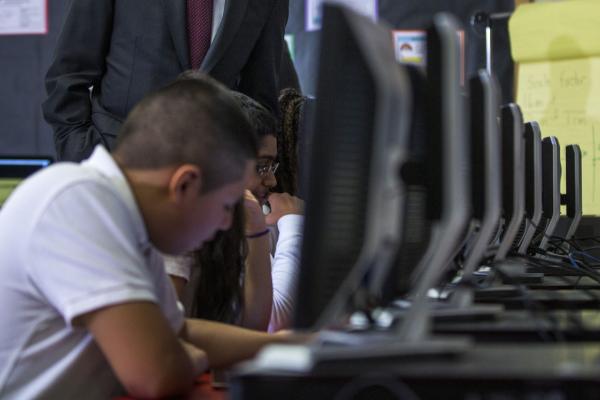Could computers be making children less intelligent?
However, it says the results of its Programme for global Student Assessment (Pisa) tests, run every three years internationally on 15-year-old pupils, indicate that increasing digital access in education without proper controls can lead to problems ranging from “information overload” to “click and paste” plagiarism. Students who use computers moderately at school tend to have better learning outcomes than those who used them rarely, while students who use them frequently at school do a lot worse.
“In contrast, in countries where it is more common for students to use the Internet at school for schoolwork, students’ performance in reading declined between 2002 and 2012, on average”, the OECD report found.
The study shows “there is no single country in which the internet is used frequently at school by a majority of students and where students’ performance improved”. The report therefore suggests that “to reduce inequalities in digital skills, countries need to improve equity in education first”.
“If you look at the best-performing education systems, such as those in East Asia, they’ve been very cautious about using technology in their classrooms”, said Mr Schleicher.
To assess their digital skills, the test required students to use a keyboard and mouse to navigate texts by using tools such as hyperlinks, browser button or scrolling, in order to access information, as well as make a chart from data or use on-screen calculators.
Just under 94 percent of Australian students use computers at school, according to the report, while the OECD average sits at 72 percent.
The risk of spending too much time on the internet is also highlighted, with students who spend more than six hours on line every weekday (outside of school) more likely to report feeling lonely at school or being late for, or skipping, school.
And schools with the highest percentage of disadvantaged students had ICT resources comparable to schools serving more advantaged students.
A teenager reads a textbook using a digital tablet.
The OECD research found no noticeable improvements for schools that had invested in technology on the results of pupils taking the Pisa test for reading, mathematics and science.
The study and report weren’t intended to discover how access to technology impacts prowess and progress in the so-called STEM subjects – science, technology, engineering and maths – so appears not to be a stick with which to beat, or defend, coding-in-schools advocates.
“In the end, technology can amplify great teaching, but great technology cannot replace poor teaching”, Schleicher said.








